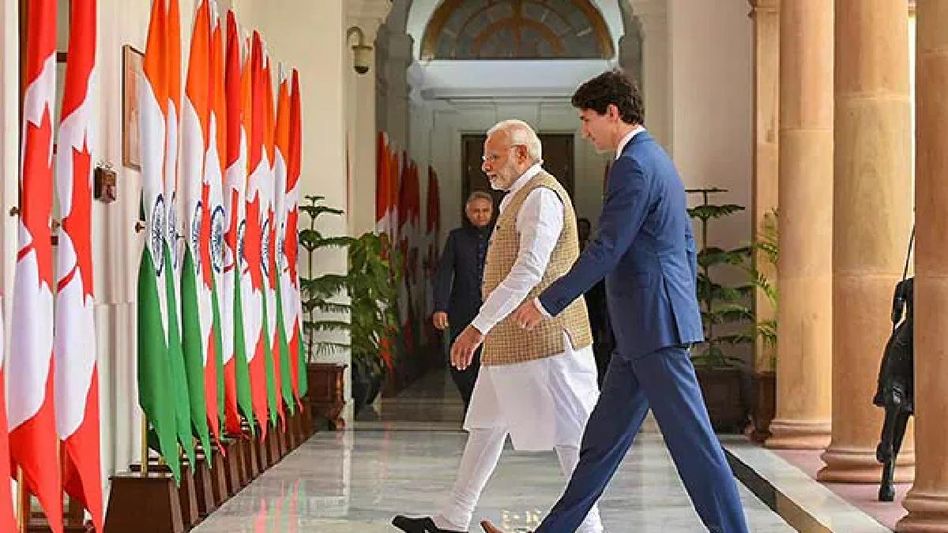India suspends visa services for Canadians amid escalating diplomatic friction
The decision comes as both nations struggle with heightened hostilities following Prime Minister Justin Trudeau's accusations of Indian involvement in the assassination of Khalistani leader Hardeep Singh Nijjar. In a tit-for-tat exchange, senior diplomats from both countries were expelled earlier this week.
 India suspends visa services for Canadians amid escalating diplomatic friction
India suspends visa services for Canadians amid escalating diplomatic frictionIn the midst of escalating diplomatic tensions between India and Canada, visa services for Canadian nationals have been suspended indefinitely. The decision comes as both nations struggle with heightened hostilities following Prime Minister Justin Trudeau's accusations of Indian involvement in the assassination of Khalistani leader Hardeep Singh Nijjar. In a tit-for-tat exchange, senior diplomats from both countries were expelled earlier this week.
While no formal announcement regarding the suspension has been made, BLS International, the agency overseeing visa application centers in Canada, posted a message on its Canadian website, stating, "Important notice from the Indian Mission: Due to operational reasons, with effect from 21st September 2023, Indian visa services have been suspended till further notice."
An Indian official confirmed the suspension but declined to provide additional comments, emphasizing, "The language is clear and it says what it is intended to say." This marks the first time that India has suspended visa services since the onset of the Covid-19 pandemic.
Notably, tensions have also prompted an advisory from India to its citizens residing in Canada, urging them to exercise utmost caution due to growing anti-India activities and "politically-condoned hate crimes." Indian students, in particular, have been advised to remain vigilant.
The catalyst for the heightened tension was the assassination of Hardeep Singh Nijjar in the parking lot of the Guru Nanak Sikh Gurdwara in Surrey, British Columbia. Nijjar was a prominent figure associated with the secessionist group Sikhs for Justice (SFJ) in the province. SFJ, which was banned in India in 2019 due to its pro-Khalistan activities, has accused India of orchestrating Nijjar's killing.
The diplomatic rift deepened as reports emerged of Canadian diplomats receiving threats on social media platforms. A spokesperson for Canada's foreign ministry, Global Affairs Canada, stated, "...we have decided to temporarily adjust staff presence in India." Canada has sought additional security measures around its diplomatic missions, including the high commission in New Delhi and consulates in Mumbai, Chandigarh, and Bengaluru.
Both countries have invoked the Vienna Convention to ensure the safety and security of their diplomats. The spokesperson for Canada's foreign ministry underscored the expectation that India would reciprocate the same level of security to Canadian diplomats in India.
In response to the rising tensions, India has also bolstered security at its missions in Canada. SFJ heightened concerns by releasing posters in July with the slogan "Kill India," followed by others blaming New Delhi for Nijjar's assassination on June 18. SFJ has issued threats against Indian missions, labeling them "terror houses" and indicating intentions to "shut them down" on September 25. The organization has also targeted Hindus of Indian origin in Canada, urging them to leave the country for their alleged support of India and their promotion of violence through celebrations related to Nijjar's assassination.
Copyright©2024 Living Media India Limited. For reprint rights: Syndications Today









